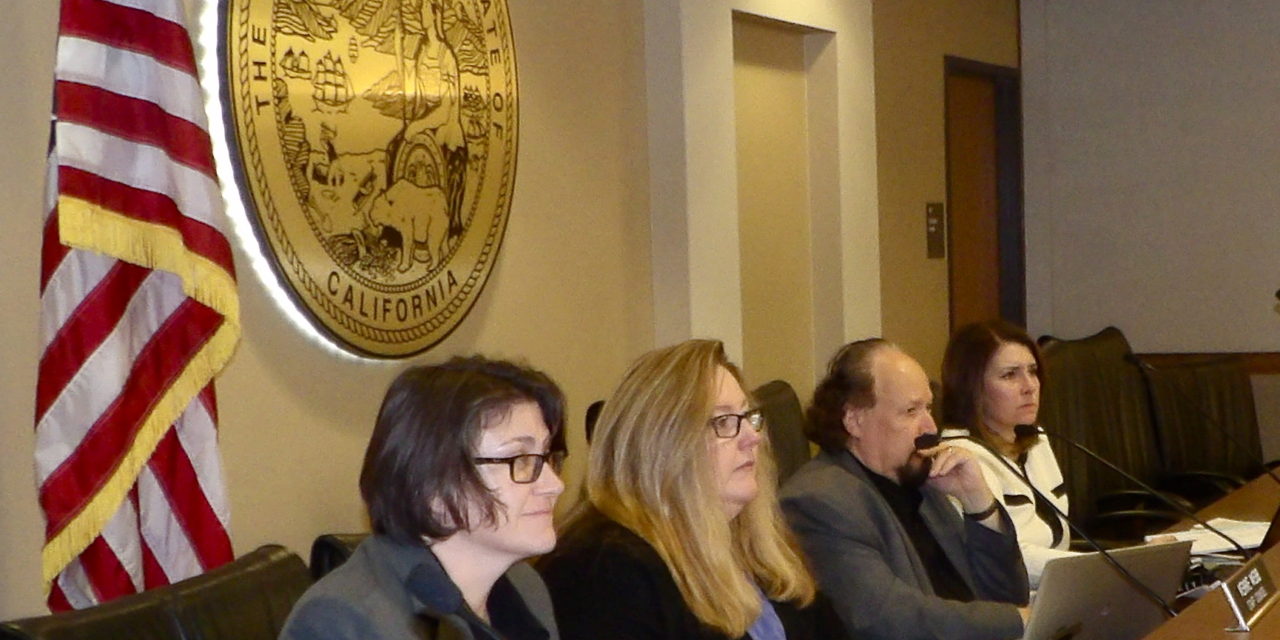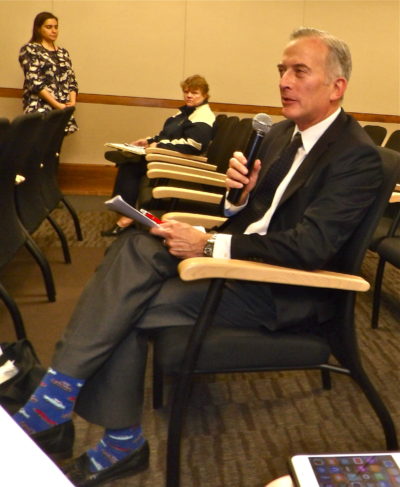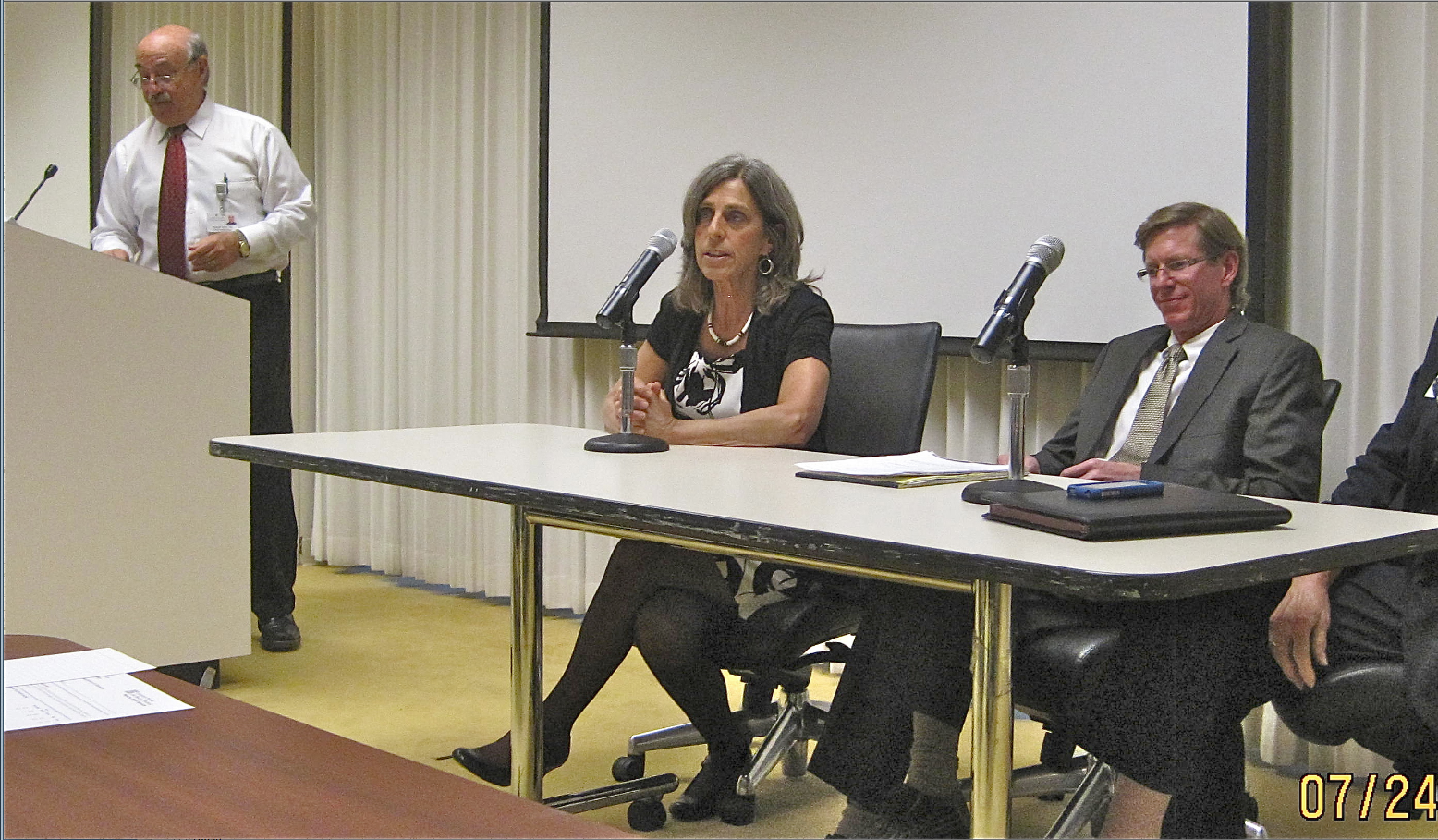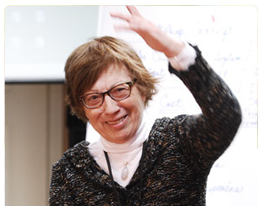Ellen Komp of California NORML drove out to Sacramento with me (FG) and Stephen Robinson, MD, of the Society Cannabis Clinicians for the February 8 meeting of the Medical Board of California’s Marijuana Task Force. This is her quick rundown:
The meeting was convened by Marijuana Task Force members Dr. Howard Krauss (opthalmologist) and Kristina Lawson, public member (land use attorney and former mayor of Walnut Creek), along with Kimberly Kirchmeyer, med board executive director and Kerrie Webb, Staff Counsel.
Notably absent was anyone from the Center for Medical Cannabis Research, despite the requirement in SB 643 that the Board consult with CMCR on “developing and adopting medical guidelines for the appropriate administration and use of medical cannabis.” It was said that no one from CMCR was able to attend the meeting, but that they “will continue to be updated and involved in this process” and hopefully will be at the next meeting. Kirchmeyer couldn’t remember, or wouldn’t tell me, who they’re talking with at CMCR.
The task force will develop draft amendments to their existing regulations (or guidelines) and present them at a follow-up meeting in approx. two months time. Further input will be taken via Lisa.Toof@mbc.ca.gov
We were permitted to give five minutes of testimony, in addition to our written input. It was all very cordial, and we got to hob nob with the members afterwards. Dr. Krauss spoke to me about the issue Dr. Bedard brought up: that docs are using pain contracts, which require patients not to get outside medicines. However, I have never heard a patient say this is the excuse their doctor used to deny them their medication. Instead they harken to federal law, or company policy. He also asked what were the medical reasons given to deny organ transplants to patients.
We also met Kathleen Nicholls, deputy chief of the Health Quality Investigation unit. She said no complaints from MMJ patients denied opiates had come to her; but for that they’d have to have made it through a review process with outside consultants run by the CCU (Central Complaint Unit) Manager. She said anyone complaining should receive notice of the outcome of the investigation. So far, I don’t know of any of these, but I will follow up with patients. Info on complaints at: http://www.mbc.ca.gov/Consumers/Complaints/
Testifying were:
Lori Ajax on the status of regulations (the usual stuff). She clarified that Adult Use marijuana would be limited as to the amount that could be purchased; for medical it will be left to the doctor’s recommendation. She suggested the task force interface with DPH on that.
Kimberly Kirchmeyer, the Board’s executive director, gave an overview on the Board’s current statement on MJ for medicine. It was issued in 2004 and said MJ should not be treated differently than prescribing any other drug. Same six items apply: prior exam, treatment plan, efficacy, record keeping, etc. In 2014 an edit was made re: Telehealth not requiring an “in person” exam.
Jennifer Simoes, legislative director, gave a presentation on SB 643. There was talk from her and Kirchmeyer about the requirement that doctors own recommending clinics; I’m starting to wonder if this is hampering places like Kaiser where the docs don’t own the company?
Kirchmeyer then gave an overview of the Federation of State Medical Boards’ Model Guidelines for Recommending MJ. Krauss acknowledged that MBC Task Force members had helped develop the Federation guidelines, but that didn’t mean they would be adopted in full. Some sections apply to states with different laws (e.g. requiring registration of physicians or patients.)
Dr. Perry Solomon of HelloMD testified for the need for tele health (for patient privacy, access, and convenience). He said all his docs must complete a 12-unit CME course (which Fred Gardner said was developed by the Society of Cannabis Clinicians).
Fred criticized the Federation recommendations on behalf of the SCC. He suggested rather than sanctions that physicians with cannabis-oriented practices be required to complete a CME course on cannabis-based medicine. He also suggested that investigators with the medical board’s Enforcement Division would benefit from training by a knowledgable clinician.
I testified mostly about the opiate problem, and suggested that the Board clarify their wording regarding federal involvement, which seems to be scaring doctors off, sending patients to specialists rather than their primary care docs.
Specifically I suggested this statement:
If a physician were to aid or abet or conspire in a violation of federal law, the federal government might revoke the physician’s DEA registration through an administrative procedure. Physicians should also be aware that a felony conviction relating to the unlawful manufacture, distribution, prescription, or dispensing of a controlled substance results in mandatory exclusion from the Medicare and Medi-Cal programs should be clarified to make doctors aware that these actions would only take place if a physician were to aid or abet in distributing, dispensing, or processing marijuana, NOT for recommending or approving its use. It should be further clarified that recommending cannabis is not “prescribing.”
Ellen Komp
Deputy Director
California NORML
www.CaNORML.orgFind California NORML on Facebook
https://www.facebook.com/CaliforniaNORMLFollow us on Twitter
https://twitter.com/CaliforniaNORML







